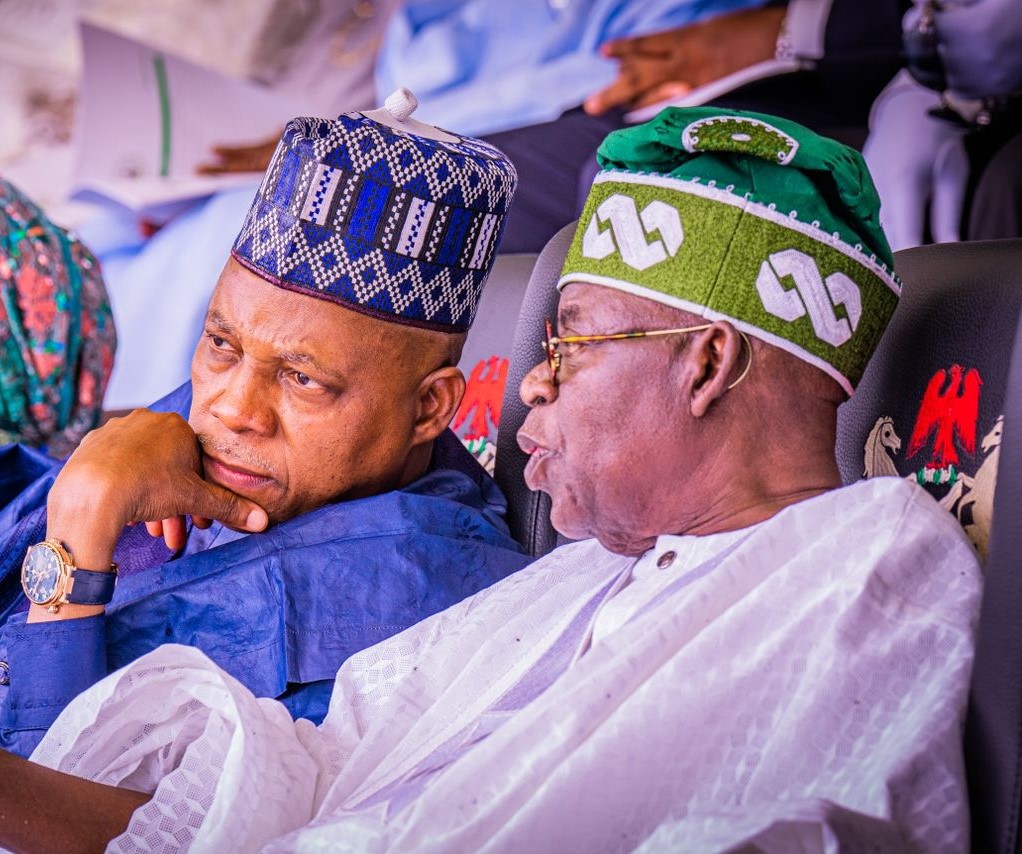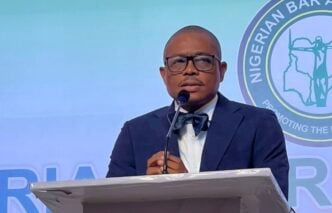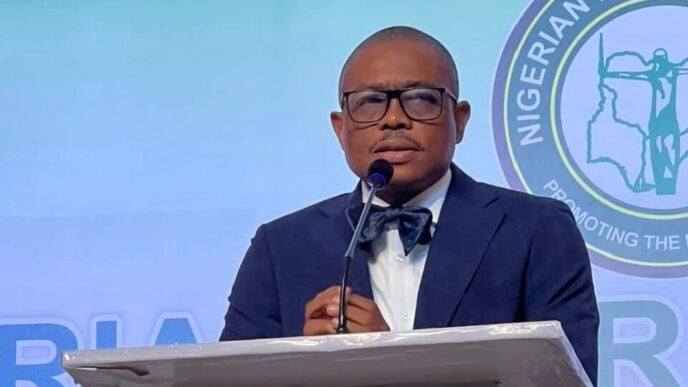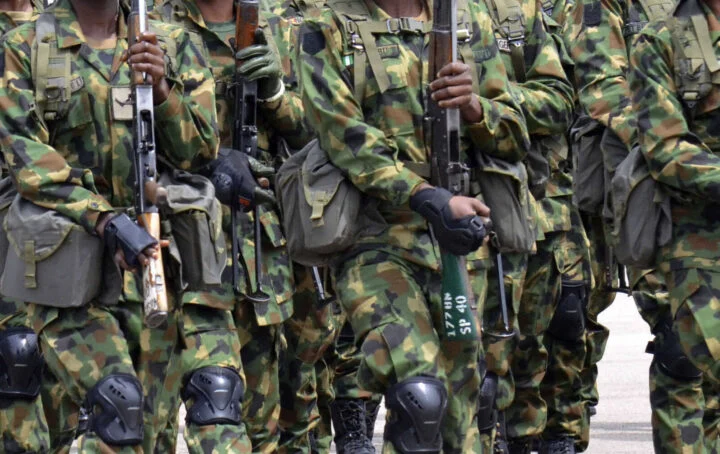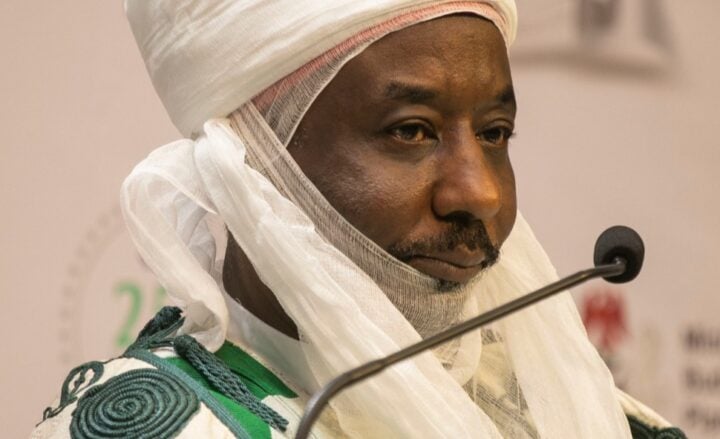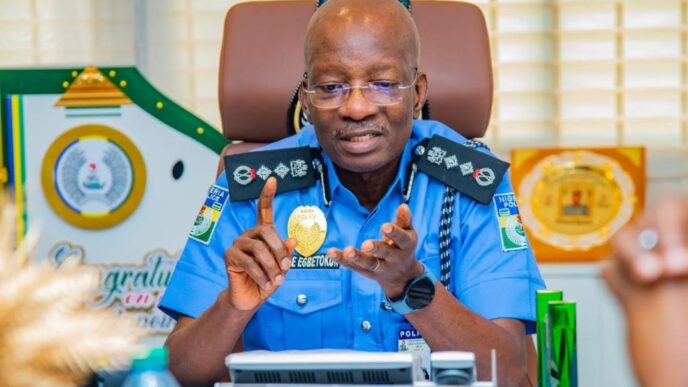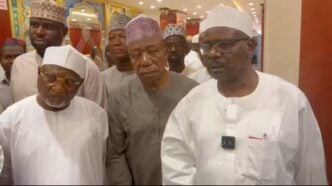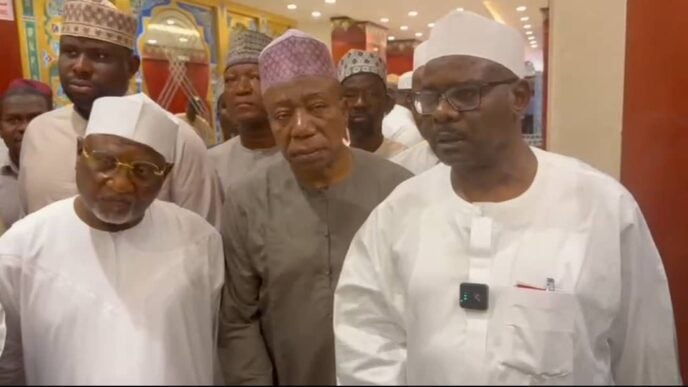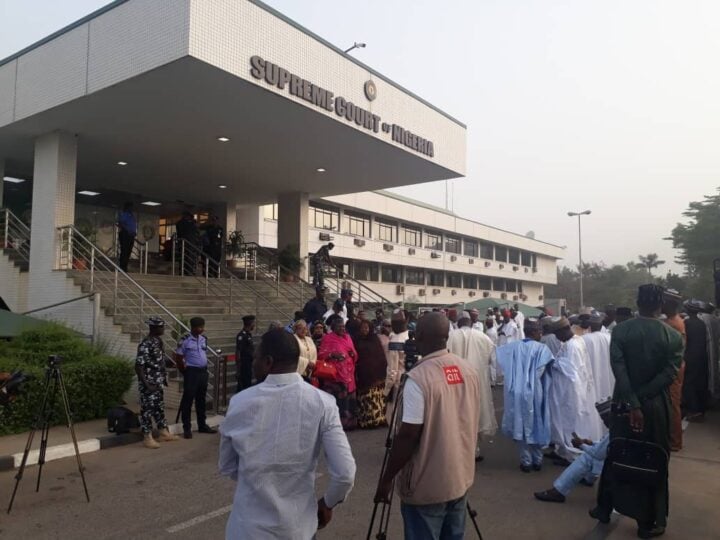File: Vice-President Kashim Shettima and President Bola Tinubu
Two years into the President Bola Tinubu administration, a cross-section of analysts say Nigeria is still grappling with worsening insecurity, economic hardship, and a shrinking civic space.
These views were shared during the May edition of Thursday Talks, a monthly public dialogue hosted by Enough is Enough (EiE) Nigeria in partnership with BudgIT Foundation.
The conversation, held on the organisation’s X Spaces and moderated by Chiamaka Dike, senior editor at GST, featured voices from the citizenry, civil society, research, and the media, with TheCable as media partner.
‘SHOCK AND PAIN’
Advertisement
Confidence MacHarry, senior analyst at SBM Intelligence, said the administration’s early moves — fuel subsidy removal and naira float — were poorly executed.
“When Tinubu took those steps on day one, it shocked the system, not because the policies were wrong, but because of how suddenly they were imposed,” he said.
He noted that subsidy, despite corruption concerns, was a lifeline for many Nigerians.
Advertisement
“Its sudden removal caused transport costs to spike and forced many people to shelve travel plans. The floating of the naira also caused a dramatic fall in its value. These two significant policy shifts affected people directly and harshly.”
On security, MacHarry criticised what he called a lack of urgency and ownership from the president.
“This is the first time since the Obasanjo administration that we have a government that is not personally invested in national security,” he said.
“Tinubu, on the other hand, delegated key national security responsibilities to his national security adviser (NSA). This makes the NSA possibly the most powerful we’ve had since 2015.
Advertisement
“But instead of focusing on actual security concerns, the NSA’s priority appears to be neutralising political opposition.”
He also pointed to government’s handling of protest.
“A key moment was the government’s harsh crackdown on the August 2024 #EndBadGovernance protests,” he added.
“Behind the scenes, the intelligence chiefs were fired, allegedly because the president was spooked by Russian flags seen in northern protests and blamed security agencies for failing to preempt it.
Advertisement
“Historically, Nigeria has never fully defeated any insurgency, not even with force. The Tinubu administration isn’t breaking that cycle.
“And there’s a dangerous narrative that insecurity is just a political tactic by enemies to bring down the regime. This kind of thinking will only worsen the crisis.”
Advertisement
‘ECONOMIC POLICIES HURTING’
Joshua Osiyemi, acting head of Tracka at BudgIT, said Tinubu’s reforms have worsened the economic hardship.
Advertisement
He noted that while the president acted swiftly, citizens already facing inflation and unemployment were left exposed.
Government relief efforts, he said, lacked coordination and transparency.
Advertisement
Osiyemi also faulted the government for not fulfilling its promise of redirecting subsidy savings to sectors like health, education, and agriculture.
He criticised the national budget as misaligned with citizens’ needs and raised concerns over electoral reforms.
“The proposed compulsory voting bill forcing Nigerians to vote or pay fines was particularly outrageous,” he said.
“It passed second reading before being dropped due to public outcry. It’s baffling that this kind of bill even made it that far. Imagine punishing people with fines of N100,000 or N200,000 for not voting. What kind of democracy does that?
“There must be rule of law. Democracy must function. This government needs to listen and understand that these policies affect real people.
“We’ve endured too much hardship. Citizens deserve better. It’s time for government institutions to serve the people, not just political interests.”
‘EDUCATION PROMISES UNFULFILLED’
Deborah Kolawole, education analyst, said most of the administration’s education promises remain unfulfilled.
Public institutions, she noted, are underfunded despite growing student populations.
“When it comes to education budgeting, many people argue that since education is on the concurrent legislative list, the federal budget alone shouldn’t be the benchmark,” she said.
“They suggest that when you combine state and federal allocations, Nigeria might even surpass the UNESCO benchmark. But that’s far from the reality.”
She said delays in disbursing promised TETFund allocations and upgrading facilities have left universities and colleges stranded.
“They promised to revitalise infrastructure, improve accreditation standards, and establish a new intervention fund. But nothing concrete has happened. Everything remains on paper,” she said.
“There’s a pattern of making pronouncements without delivery frameworks. It’s not enough to launch a programme, you have to fund it, train people, and monitor implementation.”
On the Nigerian Education Loan Fund (NELFUND), she questioned its impact.
“Yes, the administration established the Nigerian Education Loan Fund (NELFUND) and earmarked N100 billion for it. But the implementation has been marred by controversies: diversion of funds, allegations of mismanagement, and some vice-chancellors being investigated,” she added.
She also criticised federal interference in university governance.
“These institutions can’t even approve their own budgets anymore; they need clearance from the Minister or the President. That’s not how university governance is supposed to work,” Kolawole said.
“Also, the government promised scholarships, internships, and guaranteed employment for students pursuing STEM courses. Two years later, there’s no record of implementation.
“Even the Bilateral Education Agreement (BEA) scholarships — through which students are sent to countries like Russia and Turkey — are now in crisis.
“Some students have been left stranded abroad due to lack of funding, and the government is now talking about cancelling the scheme. That’s absurd, especially for a government that promised to prioritise scholarships.”
Still, she noted improvements such as lifting the federal hiring freeze in institutions and publishing education budgets and enrolment data.
‘ARE WE READY TO SOLVE THIS?’
Peter Akah, a content creator and civic advocate, said insecurity has worsened across the country, with criminal groups expanding as government presence recedes.
The scale of the crisis, he said, calls for more than lip service.
“Since 1999, Nigeria’s security situation hasn’t improved. In fact, it’s gotten worse,” Akah said.
“As we speak, the Nigerian military is actively deployed in all 36 states, including the FCT. Over 40,000 people are living in IDP camps in Abuja alone.
“The violence is everywhere — Zamfara, Plateau, Benue, Enugu, Imo, even Lagos has witnessed kidnappings. Yet, the more money we pump into defence, the worse the situation becomes.
“Let me ask: Why is insecurity growing despite all the funds poured into it?
“Unless we address the root causes of insecurity, we’ll keep running in circles. Farmers can’t go to their farms. If there’s no farming, there’s no food. If there’s no food, the economy dies. It’s all connected.
“We can’t wait until Nigeria happens to us directly before we do something. If the president won’t fix security, inflation, or democracy, fine. But Nigerians must fix the system.
“We must build institutions that hold leaders accountable. We will get the leadership we deserve, and we’ll be treated the way we allow ourselves to be treated — until we say enough.”
